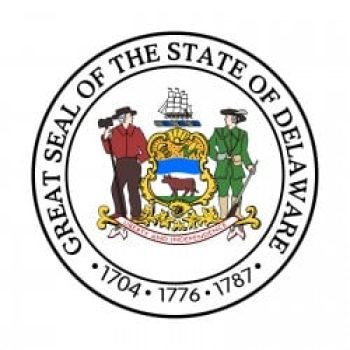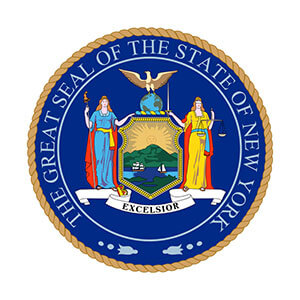Whenever a client comes to us to start a new nonprofit, one of the first topics we discuss is where to incorporate the new organization. We often recommend incorporation in Delaware, regardless of where the nonprofit plans to operate. Here are a few reasons why.
Delaware is Corporation-Friendly
Delaware is a corporation-friendly state. Delaware statutes are very flexible when it comes to formation. Where New York might require three directors for a new nonprofit, Delaware only requires one. Unlike New York, California, Massachusetts, and other states with more complex nonprofit statutes, Delaware doesn’t have a nonprofit-specific statute nor does it impose complex regulations or restrictions on a nonprofit’s activities. Because Delaware nonprofits are formed under the same statute as for-profit non-stock corporations, governance and annual reporting are fairly straightforward and flexible.
Delaware also has a thoroughly developed body of corporate law. Delaware is an incredibly popular state for all types of entities, so many corporate attorneys have a working familiarity with Delaware corporate law even if they practice elsewhere.
Nonprofit Statutes Can be Onerous
Numerous states, including New York, California, and Massachusetts, have specific statutory regimes that govern nonprofits. In each of New York, California, and Massachusetts, a nonprofit must obtain permission to merge, sell its assets or dissolve. New York’s requirements related to a nonprofit’s internal governance can be complicated – they include audit requirements, restrictions on who may serve as the chair of the board, and required procedures for managing conflicts of interest. Certain kinds of real estate transactions may require regulatory approval. Electronic voting and meetings are prohibited or discouraged. Even the timing and content of board notices may be regulated. Most of the requirements are applicable to nonprofits of every size and can be challenging for nonprofits that don’t have large infrastructure and budgets.
Delaware has no such system of regulations. The Delaware Attorney General does not review and pre-approve corporate transactions. There is no required regulatory approval for real estate transactions. Meeting requirements are flexible. A Delaware nonprofit that chooses to dissolve can do so using the same simple process available to other Delaware non-stock corporations.
Most of New York’s, California’s, and Massachusetts’s most complex and onerous regulations are inapplicable to nonprofits that are formed elsewhere regardless of whether they operate, conduct activities, or solicit funds in those states. Foreign nonprofits are still required to register with charity regulators to solicit funds or hold assets in those states, and in many cases, to submit annual filings. A Delaware nonprofit soliciting funds in New York is not required to comply with New York’s myriad of internal governance requirements but must register with New York’s Charities Bureau and submit an annual filing called the CHAR500.
Best Practices Are Great – But Should Work for the Organization
To be clear, many of the requirements found in nonprofit-specific statutes are good for nonprofits. Statutes in states such as New York, California, and Massachusetts help ensure a nonprofit is well-run and responsive to its donors, the populations it serves, and the taxpayers. But many nonprofit-specific statutes are written as a one-size-fits-all solution in a nonprofit world filled with organizations of varying sizes run by individuals with varying levels of expertise. Nonprofits should consider adopting policies which help the organization avoid conflicts of interest, ensure the board is well-run, place proper financial controls on employees and officers, and help guarantee that the nonprofit succeeds in achieving its charitable mission. But those policies should reflect the needs of the particular nonprofit in question and may vary greatly from organization to organization. By incorporating in Delaware, a nonprofit can retain the flexibility to tailor its governance to meet its unique needs.
When Away From Home, Know The Rules
A nonprofit incorporated in Delaware (or any other state) is still subject to oversight by state charity officials in the states where the nonprofit operates. If a nonprofit operates in a state with active charity regulators, the nonprofit must remain vigilant of its registration and reporting requirements, as well as rules that govern charitable solicitation. Local rules regarding employment, banking, insurance, contracts, and liability still apply even if the group is incorporated in Delaware. In recent years we have seen a growing number of charity officials taking an active role in encouraging nonprofits to adopt “best practices” by bringing enforcement actions against groups that the regulators perceive as poorly-run. Therefore, even a Delaware nonprofit should be familiar with the rules in every jurisdiction where it operates – competent counsel is almost indispensable.
- Perlman & Perlman
- Perlman & Perlman
- Perlman & Perlman
- Perlman & Perlman
- Perlman & Perlman
- Perlman & Perlman
- Perlman & Perlman
- Perlman & Perlman
- Perlman & Perlman
- Perlman & Perlman
- Perlman & Perlman
- Perlman & Perlman
- Perlman & Perlman
- Perlman & Perlman
- Perlman & Perlman
- Perlman & Perlman
- Perlman & Perlman
- Perlman & Perlman
- Perlman & Perlman
- Perlman & Perlman
- Perlman & Perlman
- Perlman & Perlman
- Perlman & Perlman
- Perlman & Perlman
- Perlman & Perlman
- Perlman & Perlman
- Perlman & Perlman
- Perlman & Perlman
- Perlman & Perlman
- Perlman & Perlman
- Perlman & Perlman
- Perlman & Perlman
- Perlman & Perlman
- Perlman & Perlman















